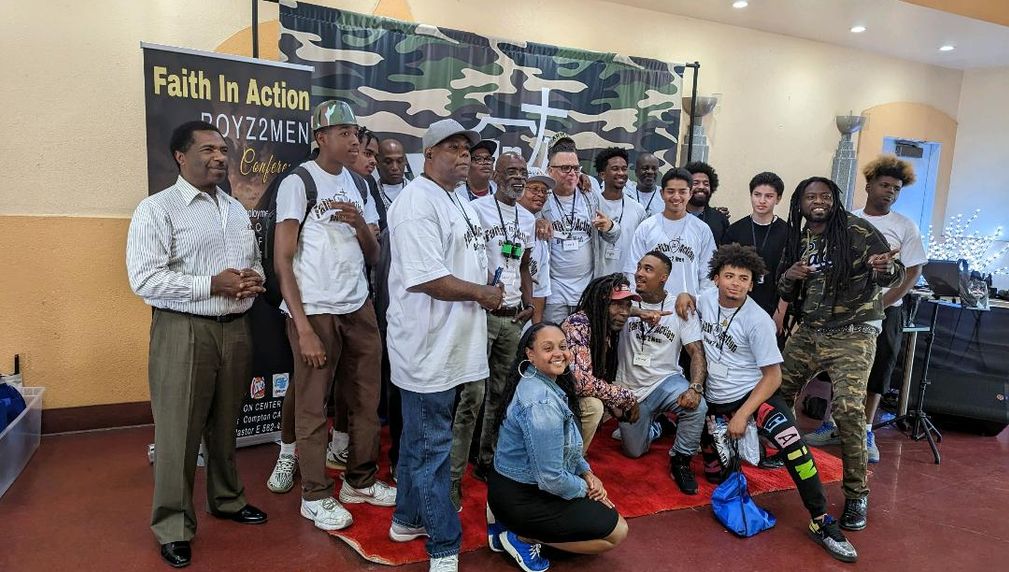Pathway to Re-entry Post Incarceration Starting over Strong!
The keys to open doors to the pathway of reentry post incarceration are necessary to get one's life on the right track to success as quickly and as easily as possible in order to have a smooth transition back into society. The first 30 days are crucial and the most important stage to reentry as one must be reestablished with basic and fundamental needs to make a smooth transition back into society. Help is most needed during this time of adjustment.

What is the primary issue area that your application will impact?
Opportunities for People Who Have Been Incarcerated
In which areas of Los Angeles will you be directly working?
County of Los Angeles
In what stage of innovation is this project, program, or initiative?
Expand existing project, program, or initiative
What is your understanding of the issue that you are seeking to address?
The effects of mass incarceration of low income and communities of color has a devastating effect on human life of the formerly incarcerated and their families. Many have been down 20 + years, some most their lives. The longer removed from society the more alienated one feels upon release. Some shared that they felt "like a fish out of water" when released. They are instructed to report to their Parole Officer within 24 hours and released at the front gate with $200 gate money and maybe a check for a few more dollars they had on the books. Imagine being released with a check and no ID to cash it! Many upon release have expressed feelings of vulnerability, realizing that they need help from someone else to get themselves together and fast. Most have burned bridges with family and friends who are not willing or able to help, so they feel unwelcomed and abandoned. The pace of life is faster, technology more advanced. They don't know where to turn for help, what to do or how to do it.
Describe the project, program, or initiative this grant will support to address the issue.
What is reentry? Reentry is the process of a person's transition from prison or jail to rejoining the community. Reentry is a process that requires people to be able to fulfill their basic needs and reconnect with the community, including obtaining identification documents (ID), securing housing, figuring out employment and finances, succeeding on parole or probation, signing up for health care, and reuniting with family members. Counseling is recommended for all This is where P2P Community Development steps in to "meet people where they are at" in the context of reentry, and does a case management assessment and designs an individual plan to lead them step by step through the process of getting reestablished in society starting with the basic needs of: - Driver License/ID Card, Social Security Card. Birth certificate - Housing Referrals - Income and other needs - Transportation-Bus pass/tokens - Job Development-Resume Writing-Interviewing-Dress code - School/Training - Entrepreneurial training - Family Services - Mentorship - Mental Health Referrals - Parolee Rights - Legal Referrals As a service provider, we use a Toolkit that explains our clients' rights and how to overcome barriers sometimes faced. The Toolkit also addresses specific steps to take to tailor services according to our client's goals and needs once the initial assessment is completed. We help them to obtain all the basic necessities and make the appropriate referrals as necessary for additional services.
Describe how Los Angeles County will be different if your work is successful.
Each stage of the reentry process is designed to increase the odds that people returning home can successfully and productively remain in the community. The risk of re-arrest is higher in low-income communities and communities of color for many reasons, number one, lack of access to resources and services. A sense of hope, efficacy, and overall well-being is important for a successful reentry. P2P's goal is to reduce recidivism by helping as many individuals as possible, released into L.A. County communities to provide immediately upon release, the resources and services needed. Our goal is to reunite families, bringing parents back home to their children who need them. Once established back into the workplace or business they can pay taxes bring more revenue to the city, county, state and federal and reduce the burden on the social service agencies, keep more people out of prison/jail, working and self-sufficient and making positive contributions, it's going to be a win/win for all.
What evidence do you have that this project, program, or initiative is or will be successful, and how will you define and measure success?
This is a project we have been doing for years, working with recently released referred to us by our partner organizations, Parole/Probation dept., families and our community. It has been successful based on the many success stories of those we have helped get their lives back on track, working jobs, running businesses, and giving back by being volunteers. Our Faith In Action Boyz2Men venture, in which we have collaborated with several other CBO's, has caused us to expand our capacity to be able to help more people. We are also looking to go into the prison/jails to work with the incarcerated to help prepare them prior to their release, that way we will be able to be more proactive and get a lot of the basic things done prior to their release. Our evaluation process is comprehensive, measurable, and tracked based on our case management data collected. Our success is measured based on the ability to reduce recidivism and improve our communities, making a safer place to live for all.
Approximately how many people will be impacted by this project, program, or initiative?
Direct Impact: 480
Indirect Impact: 2,400